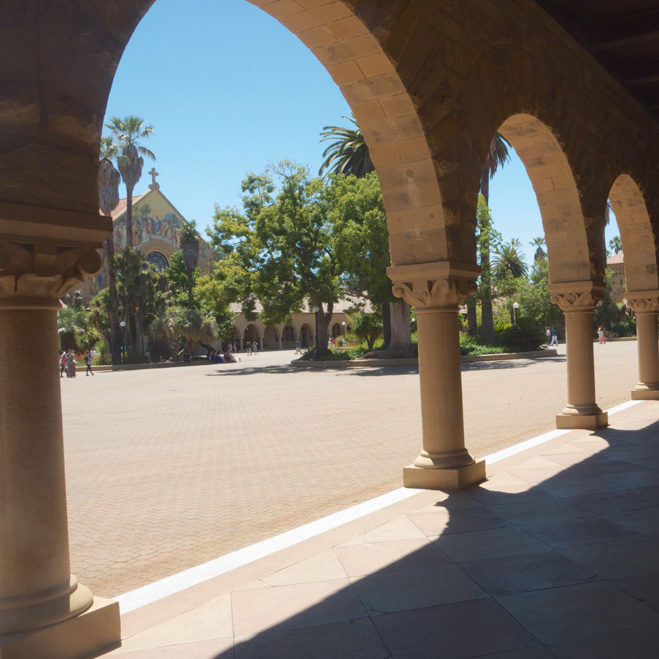Developing new technology to analyze threats to the human body, creating the first quick-acting medication for obsessive-compulsive disorder (OCD) and questioning the very roots of science: these are all projects in the works by award-winning Stanford researchers.
Twelve Stanford researchers received the Presidential Early Career Award for Scientists and Engineers (PECASE), the U.S. government’s highest honor acknowledging the revolutionary potential shown by scientists and engineers in the beginning stages of their independent careers.
The award is about more than simply prestige. For some, it comes with up to five years of government funding for further research.
“When you do research, it’s like diving into the unknown, and receiving feedback like this assures you that you’re on the right track,” said Gordon Wetzstein, an electrical engineering professor and PECASE recipient.
Wetzstein’s journey as an independent researcher began when he did his undergrad at the Bauhaus University in Germany. Today, his group is focused on the engineering of emerging imaging systems. His work has a direct impact on new applications, like autonomous driving.
“I’m driven by curiosity, so figuring out challenging problems and pushing the frontiers of science is what gets me excited,” Wetzstein said.
Many of the researchers said they are grateful for mentors who introduced them to the research process early on in their lives.
Computer science professor Matei Zaharia was interested in trying out research during his undergrad at the University of Waterloo. Luckily for him, his first-year mentor happened to be looking for undergraduate researchers. That first project led to more research work for Zaharia.
“In a university, you get more freedom than anywhere else to explore your own research ideas and change directions when you wish to,” Zaharia said. “On top of that, you get the opportunity to collaborate with a fantastic set of colleagues — certainly more colleagues in more fields than at any private research organization.”
During pathology professor Scott Boyd’s medical residency and fellowship years, he and his colleagues identified new DNA sequencing methods and single-cell experiments to study the genes that allow the immune system to recognize a variety of possible threats. Through their experiments, Boyd’s team analyzed human immune responses that are responsible for effective protection from diseases, as well as the harmful, misdirected immune responses in conditions such as allergies.
“One of the great joys of working in biomedical academia is having the freedom to decide what clinical or basic science mysteries you find most compelling, and then trying to figure them out,” Boyd said.
While doing her Ph.D. at the California Institute of Technology, chemical engineering professor Roseanna Zia found herself fascinated by the mysteries of fundamental ideas at the root of basic science.
“I became deeply interested in states of matter and how physics influenced the origins of life,” she said. “I decided to pursue forming my own research group and independent lab studying colloid physics, so that I could design and direct this research with the help of talented graduate students and postdocs.”
Zia began her independent research work at Cornell University in 2013, before moving her research group to Stanford’s chemical engineering department in 2017.
Two other researchers were motivated by the goal of helping patients through clinical research.
Neurology professor Michelle Monje said she has always held a fascination with biology, specifically neuroscience. After beginning to study medicine, she realized that she wanted to take care of patients by treating disease at the bedside and by furthering understanding of disease in the lab, which is what spurred her research career.
Psychiatry and behavioral sciences professor Carolyn Rodriguez researched mental health, specifically OCD. Her work was geared to finding a fast acting treatment for OCD. The highlight of her career, she said, was the difference she was able to make in the lives of her patients.
“It was satisfying to test the hypothesis after navigating numerous challenges, and to see the surprise, relief, and the smile on the patient’s face,” Rodriguez said. “I am proud to represent the promise of as well as advocate the need for more mental health research for our patients who need help now.”
Other Stanford researchers who received the PECASE were Lynette Cegelski, associate professor of chemistry, Percy Liang, associate professor of computer science, Christian Linder, associate professor of civil and environmental engineering, Monika Schleier-Smith, assistant professor of physics, Jenny Suckale, assistant professor of geophysics and Jamil Zaki, associate professor of psychology.
“I am deeply thankful to the program officers at those agencies whose belief in my ideas allowed me to build a body of work worthy of such an award,” Zia said.
Contact Kavya Iyer at kavyakiyer ‘at’ gmail.com.
